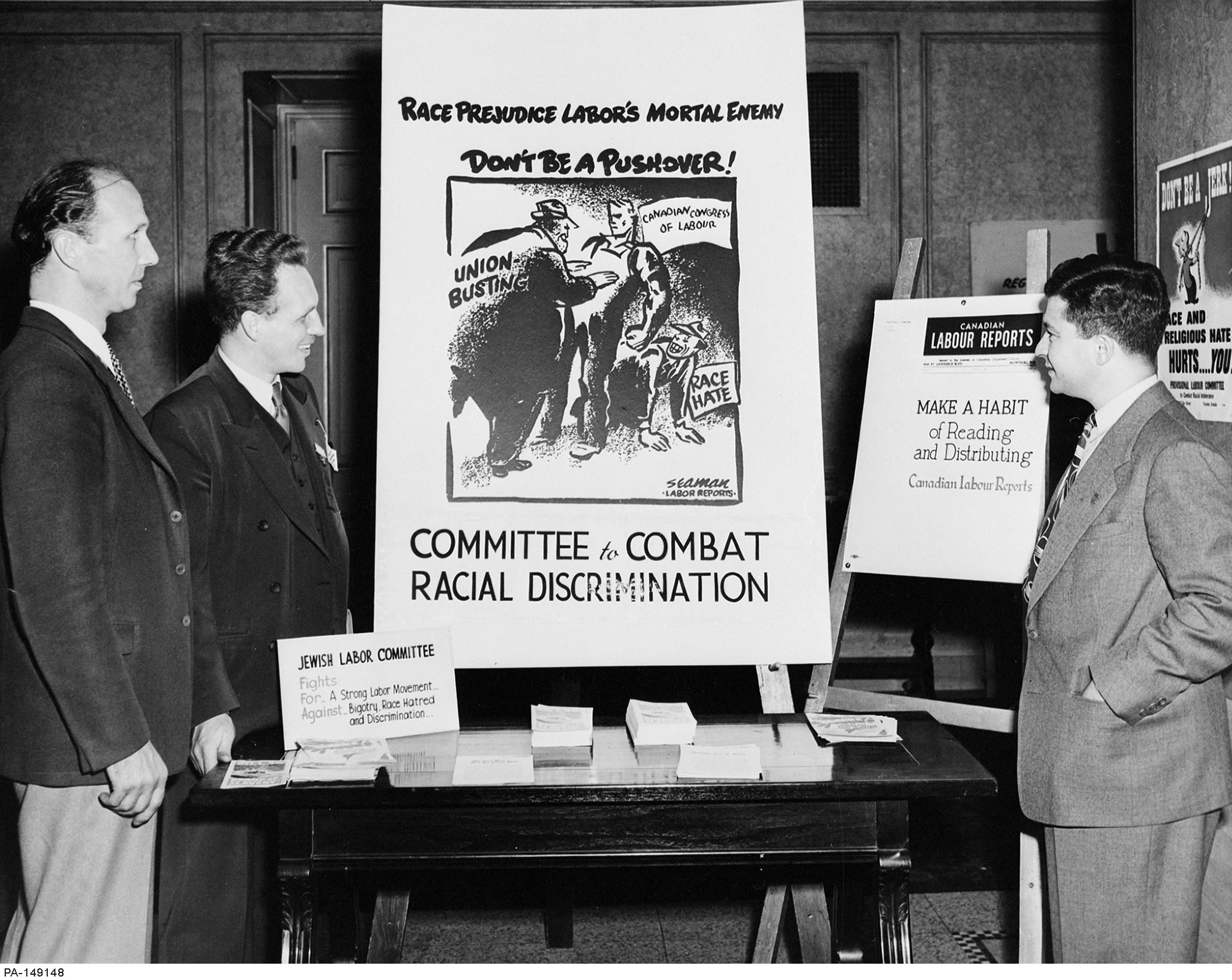Restrictive Covenants
A restrictive covenant was an agreement among a group of people to ban religious or racial minorities from purchasing property, usually houses but also plots in a cemetery. The following restrictive covenant, for instance, was signed by a group of homeowners in an Ontario neighbourhood in 1951:
The ownership of no lot on plan 269 and no part of the low-water beach aforesaid shall be transferred by sale, inheritance, gift or otherwise, nor rented, licensed to our occupied by any person wholly or partly of negro, Asiatic, coloured or Semitic blood, nor to any person less than four generations removed from that part of Europe lying south of latitude 55 degrees and east of longitude 15 degrees east. Relationship, however slight, to any class forbidden as aforesaid shall be deemed sufficient to prevent transfer to or occupancy by such persons of northern and western European descent, other than Jews. Such restriction, however, shall not apply to bona fide domestic servants of actual occupants during the period of such occupancy. The land and premises herein described shall never be sold, assigned, transferred, leased, rented or in any manner whatsoever alienated to and shall never be occupied or used in any manner whatsoever by any person of the Jewish, Hebrew, Semitic, negro or coloured race or blood, it being the intention and purpose of the Grantor, to restrict the ownership, use, occupation and enjoyment of the said recreational development, including the lands and premises herein described to person of the white or Caucasian race not excluded by this clause. No building shall be erected on these premises except by a person who is a white Gentile, nor by any limited company whose shareholders are not entirely Gentile.
Excerpt quoted in: LAC, JLC, MG28, V75, vol.23, f.6 A Brief from the Association for Civil Liberties to the Premier of Ontario, 1951.
The legality of restrictive covenants was challenged in 1948 in the famous case Noble v Wolf, and an earlier case Drummon Wren. As James Walker explains about the former case: “Beach O’Pines is a Lake Huron summer home development. Under a covenant attached to the original titles, no “person of the Jewish . . . or coloured race or blood” could rent or purchase land within the development area. Bernard Wolf, a Jew, purchased a cottage from Annie Maude Noble in 1948, but the restrictive covenant was invoked by the other owners to invalidate the sale. Mr. Wolf proceeded with his purchase, bringing the covenant before the scrutiny of the courts.” [Walker, 5]
Further Reading
Bruner, Arnold. “The Genesis of Ontario’s Rights Legislation: A Study in Law Reform” University of Toronto Faculty Law Review 37 (1979): 236-253.
Walker, James. “Race,” Rights and the Law in the Supreme Court of Canada: Historical Case Studies. Toronto: Wilfrid Laurier University Press, 1997.
 Site Resources
Site Resources-
- Any use of material or referencing content from HistoryOfRights.ca should be acknowledged by the User and cited as follows:
–
- Clément, Dominique. “page title or document title.” Canada’s Human Rights History. www.HistoryOfRights.ca (date accessed).


 Encyclopaedia
Encyclopaedia 
 © 2024 COPYRIGHT CLÉMENT CONSULTING. ALL RIGHTS RESERVED.
DEPARTMENT OF SOCIOLOGY, UNIVERSITY OF ALBERTA
© 2024 COPYRIGHT CLÉMENT CONSULTING. ALL RIGHTS RESERVED.
DEPARTMENT OF SOCIOLOGY, UNIVERSITY OF ALBERTA